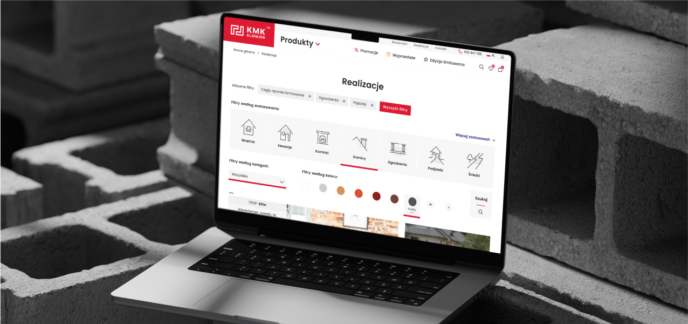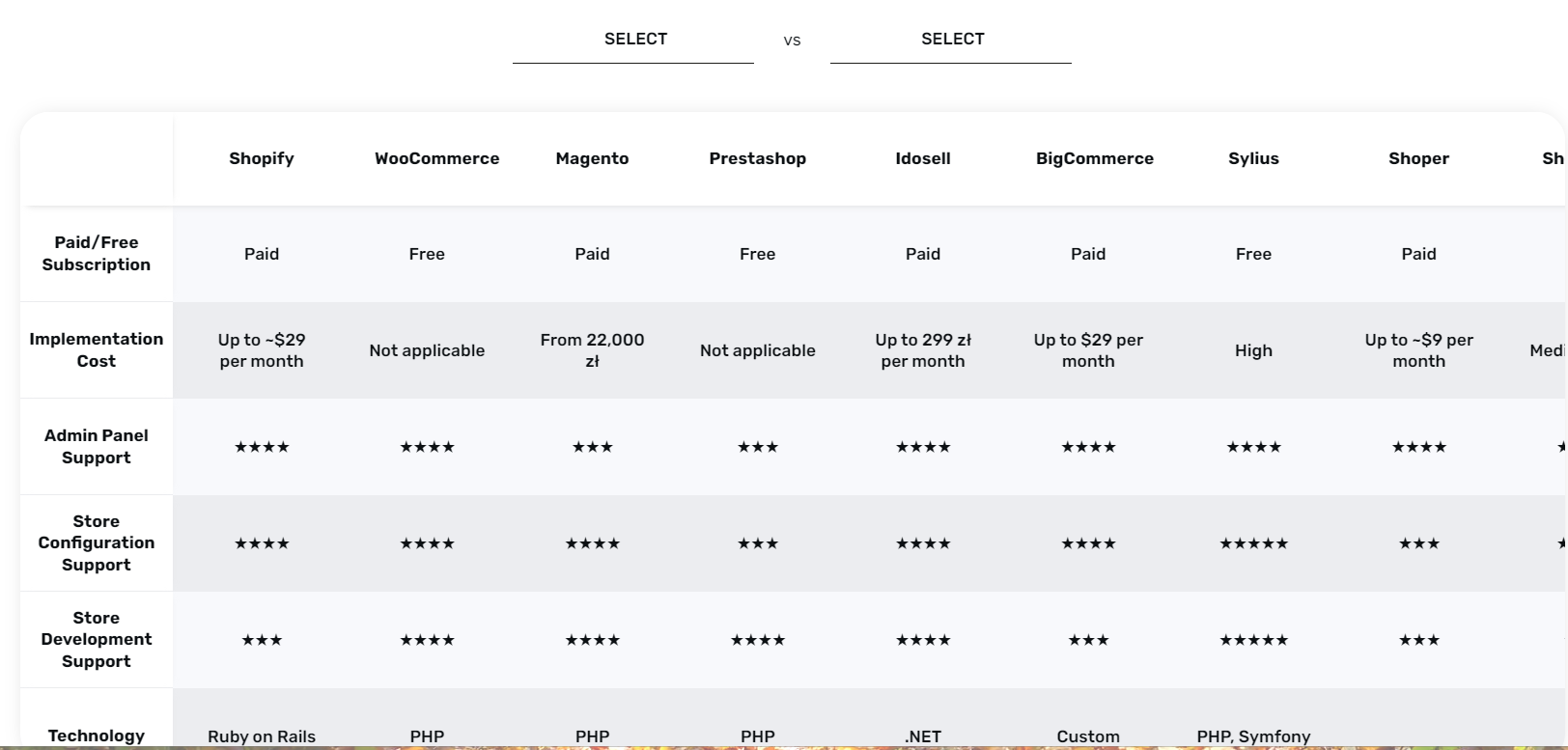Best Online Store Platforms?

In today’s era of e-commerce, choosing the right e-commerce platform is a key factor in achieving business success. Whether embarking on an e-commerce adventure for the first time or planning to migrate an existing online store, a thorough understanding of the various platforms available on the market is necessary. The choice of an e-commerce platform depends on various factors, such as the type of business, the number of products, functionalities, budget, and development plans. Below, we will provide an overview of the most popular e-commerce platforms and discuss their advantages and disadvantages.
Why is the popularity of e-commerce growing?
Before delving into the comparison of e-commerce platforms, it’s essential to understand why e-commerce is becoming increasingly popular in Poland. Over the last few years, the number of online transactions and the amounts spent in online commerce have been steadily rising. This phenomenon can be attributed to increased consumer awareness regarding the security of online shopping and changes resulting from the COVID-19 pandemic. Many entrepreneurs had to adapt to new realities and move their stores into the online commerce world. –> ecommerce ranking
Popular e-commerce platforms
In the Polish market, there are many e-commerce platforms with different business models and distinctive features. We will present four main categories of selling platforms: Open Source, SaaS (Software as a Service), dedicated platforms, and licensed platforms.
1.Open Source Platforms
Open Source platforms are software that is publicly available and does not require licensing fees. These are popular solutions for those who want full control over their online store. Examples of Open Source platforms include WooCommerce, Magento, and PrestaShop. These platforms offer many features and customization options but require some technical knowledge and configuration skills
2. SaaS Platforms (Software as a Service)
SaaS platforms are solutions where the service provider maintains the software on their servers. Customers pay a monthly subscription to use ready-made templates and platform features. Examples of SaaS platforms include Shopify and PrestaShop Cloud. These platforms are easy to configure and do not require extensive technical knowledge, but they may have limited customization capabilities.
3. Dedicated Platforms
Dedicated platforms are created on the client’s request and fully tailored to their needs. These are the most flexible solutions, but they are also the most expensive. Examples of dedicated platforms include 2ClickShop and Ideo e-commerce. These platforms require advanced programming knowledge and a long implementation time, but offer full control and customization.
4. Licensed Platforms
Licensed platforms are professional solutions that offer advanced features and support. They are usually more expensive and are used by large, established companies. Examples of licensed platforms include Magento Commerce, SAP, and Hybris. These platforms have many advanced features but require high implementation and maintenance costs.
How do you choose the best e-commerce platform for your business?
Choosing the best e-commerce platform for your online store depends on many factors. Before making a decision, it’s essential to conduct a thorough analysis of your business and determine your needs. Here are a few factors to consider:
- Type of business: Determine whether your business focuses on selling physical products, digital goods, services, or subscriptions. Some platforms may be more suitable for specific industries.
- Number of products: If you have a large product range, pay attention to platforms that offer easy management and scalability.
- Functionalities: Create a list of essential features for your store, such as payment integrations, SEO modules, customization options, multilingual support, etc.
- Budget: Define your budget for implementing the e-commerce platform. Remember that not only the implementation cost matters, but also the ongoing maintenance and platform support costs.
- Development plans: Anticipate the future needs of your business and consider whether the chosen platform will be able to meet growing requirements.
In conclusion, choosing the right e-commerce platform for your online store is crucial for business success. Each platform has its pros and cons, so it’s important to understand your needs thoroughly and analyze different options. There is no one-size-fits-all solution for all businesses, so conducting in-depth research and testing various platforms before making a decision is recommended. Remember that choosing an e-commerce platform is an investment in the future of your business, so it’s worth dedicating time and resources to thoroughly exploring different options.



